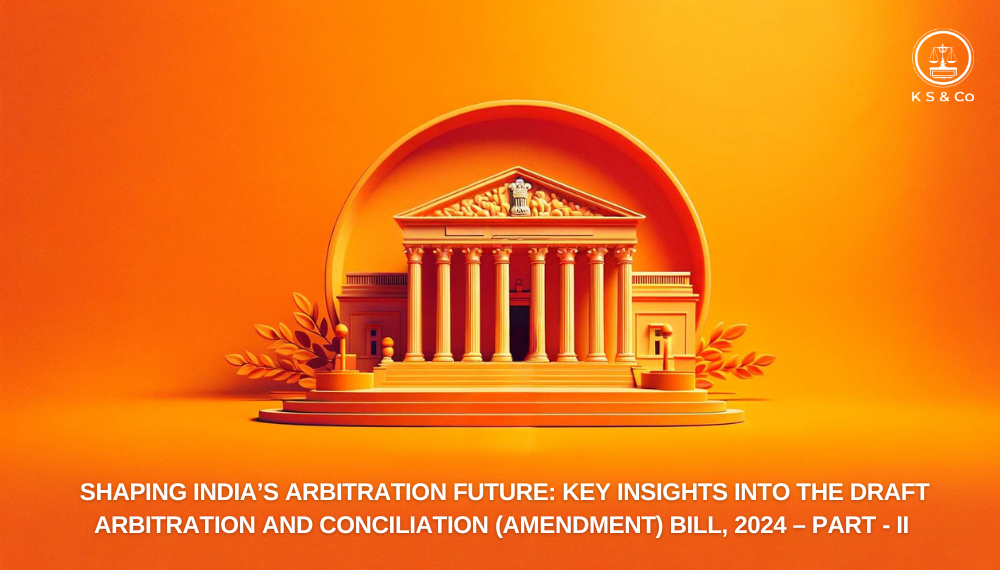The Make in India wave gripped the nation at a time when India was receiving a lot of flak for having an over burdened legal system plagued by inordinate delays in delivery of justice. Major dent to the image has been caused with regards to non enforcement of contracts, difficulty in recovery of monetary claims and for not receiving award of compensation for damages suffered. For instance, in the White Industries Case, India was found guilty of violating the India-Australia bilateral investment treaty for the delay caused in resolving the dispute in a timely manner.
The Government of India provided the much required nudge by enacting two Acts namely the Arbitration & Conciliation Act, 2015 and Commercial Courts Act, 2015 with international players in mind to make India a favourable investor state. Besides Negotiable Instruments Act, previously all commercial disputes were subject to Civil Procedure Code thereby causing a hostage like situation wherein the procedural shackles were a major deterrent in resolution of disputes in a just and timely manner. To counter this and to ensure speedy disposal of commercial disputes especially with regards to international litigants, the Government of India has enacted the Commercial Courts Act, 2015. This Act received the President’s assent on 31 December 2015. However, it is deemed to be operative from 23 October 2015.
The Act stipulates constitution of Commercial Courts at District level, Commercial Division and Commercial Appellate division in High Courts for adjudicating commercial disputes of minimum one crore and above. The Central Government in consultation with the Chief justice of the High Court has been given the power to constitute the Commercial Courts at District level for High Courts that do not have ordinary original civil jurisdiction. However, High Courts with ordinary original civil jurisdiction (Calcutta, Madras, Bombay, Delhi & Himachal Pradesh) shall have a commercial division at the High Courts. The appeal from these two shall go to the Commercial Appellate Division within a period of 60 days. The Act has received accolades from several quarters for keeping the tight perimeter of disposal within 6 months. There has further been a sanction on the revision applications. The aggrieved party will have to now wait till the final disposal of the case to appeal against even the interlocutory order.
The Act has tried to provide a comprehensive list of transactions that can give rise to disputes of commercial nature in the most generic sense. It entails a wide range of transactions from Shareholders agreement, Franchising agreement, JV agreements and the likes to transactions regarding export or import of merchandise or services, admiralty and maritime law, aircrafts and carriage of goods to disputes relating to intellectual property, natural resources including electromagnetic spectrum. All matters excluding the appointment of arbitrator are brought within the purview of Commercial Division in High Court. With regards to international commercial arbitration, the Commercial division will now have jurisdiction to try.
The Act has brought a sea change as far as the procedure to be followed under the Civil Procedure Code, as amended in 2002. Keeping up with the aim of speedy disposal of case, the Act talks about the Summary Judgment procedure that will allow the Court to pronounce judgment on the whole or part of the claim solely on the basis of written arguments and the oral argument shall be dispensed with. The legislature has brought in the concept of Case Management Hearing borrowed from the UK counterpart of the Indian Civil Procedure Code which enables the Court to ascertain the time limit for submission of written arguments and oral arguments. This shall aid the litigants and advocates alike in determining the time frame for the conclusion of proceedings.
The Act has very clearly laid down that in case of any inconsistency with any other Act, any provision of any rule of High Court or any State amendment to CPC, this amended Act shall prevail.
Although the Commercial Courts Act outlines a brusque schedule for conduct of proceedings, a lot of quarters have criticized the same for being too optimistic. The pecuniary threshold of Rs. One crore too seems to be an amount too small in comparison to the investor with whose focus the Act has been enacted. The spirit of the Act is crucial towards instilling the investor confidence in India; however, it is equally on the shoulders of the Central Government, State government and the Bar to work towards enforcing this Act in letter and spirit to dispense with the “tareek pe tareek” culture.






